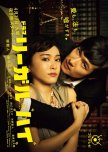
Kamo, Kyoto e Iku (Kamo Goes to Kyoto) belongs to an unusual subset of dramas. While a plot exists and the story is passably well-told, everything ends up feeling rather educational. We see the beautiful city of Kyoto, complete with its landmarks and various traditions. We see how the ryokan is run, right down to maid etiquette, ofuro cleaning, and the composition of kaiseki (traditional Japanese cuisine, a staple of these establishments). This aspect is much stronger than the script itself, though even that remains enjoyable if somewhat simple. And if you like themes of modernity vs. tradition, you may discover another layer of appeal.
Should you actively seek out knock-out performances, continue your search; this drama will not offer them. However, nobody does a poor job either; most characters are pleasant and, at the very least, reasonably acted. Matsushima Nao might be most memorable, headlining as Ueba Kamo: seasoned finance official and Kyoto anti-fan (she even hates her name, originating from the famous river which runs through that city). Her elitist portrayal is believable, as it is when she switches gears. The exploits of this character lead us through the events of the drama, and the operations of the ryokan itself. Though she also has a cute side, mostly shown through her morning exercise routine.
Music follows a similar tack as acting. Everything is suitable and works in most scenes, but very little stands out. However, Sheena Ringo provides the striking vocal theme ("Iroha ni hoheto" or "Even Blossoming Flowers") definitely worth listening to again.
I would mostly recommend this drama to Kyoto-lovers, or those seeking cultural enrichment. Coming into this drama for other reasons might lead to a lukewarm experience. Don't be discouraged though! Kamo, Kyoto e Iku might have a lot to offer potential viewers of any kind.
Cet avis était-il utile?







































